Oscar Volley: Best Cinematography could make History
 Tuesday, March 15, 2022 at 4:21PM
Tuesday, March 15, 2022 at 4:21PM Team Experience is discussing the various Oscar categories. Here's Cláudio Alves, Nick Davis, Ben Miller, and Eurocheese discussing the Best Cinematography race.
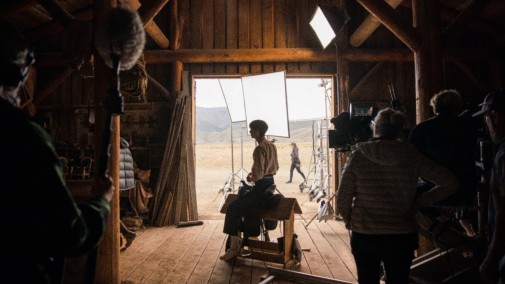
CLÁUDIO ALVES: From an aged future that looks like the ancient past to a black-and-white nightmare of Expressionistic Shakespeare, from digital polish to a rainbow of 35mm lens flares, the Best Cinematography Oscar race presents a cornucopia of varied visual strategies. However, to celebrate this category for variety feels somewhat disingenuous this year. For the first time since the color and black-and-white categories merged in 1967, the Cinematography ballot looks identical to the Production Design one. Even though voted on by separate branches, these lineups' sameness speaks to a broader problem – how the Academy feels increasingly resistant to expand its interest beyond a select group of pictures each season…
My thirst for true variety is so keen that I honestly wish Ari Wegner had been nominated for Zola instead of The Power of the Dog. This is no comment against the photographic qualities of Campion's latest, merely an acknowledgment that it'd be nice if AMPAs spread the wealth a bit more. Also, Zola just looks smashing compared to some of these nominees. Color-wise, it's certainly more adventurous than the sandy Dune or Nightmare Alley's world of coagulated reds and sickly greens. Even West Side Story's chromatic vividness feels tame in relation to Wegner's work for Janicza Bravo. Admittedly, I'm being too much of a dreamer and too much of a grouch. After all, this is a good lineup, and Zola was never on the Academy's radar.
More realistic alternatives are Claire Mathon's Spencer phantasmagoria and Linus Sandgren's jewel-toned take on No Time to Die. I'd scrap Kaminski and Laustsen's nominations in favor of those two, that's for sure.
What about you guys? If you could take a nomination away from this lineup and give it to another film feasibly in AMPAS' crosshairs, what would you choose?
BEN MILLER: I'll be the stick in the mud...I hate West Side Story's cinematography. Every shot is TRYING SO HARD. There is no subtlety of any kind. Just because it's one of the MOST, doesn't mean it's the best. Every shot that Film Twitter loses its collective mind amount makes me roll my eyes.
I do agree that Mathon is more deserving, but I would single out Adolphus Veloso's gentle naturalism in Jockey. That movie was way to small to make an actual impact, but that would be my pick over WSS. I would also kick out Nightmare Alley's eternal dark/dreary in favor of Mathon. I'm a big fan of the other three.
NICK DAVIS: Cláudio, you are so speaking my language about Zola, which fully deserves this nom (and many others) on its own visually ingenious terms, even setting aside the fatigue of seeing the same films mentioned everywhere. Passing’s adventures with depth of field and ambiguously subjective framing ought to have generated a mention, too, though at least Edu Grau got his moment at the Indie Spirits. Ben, since you mentioned Jockey, I’ll stump for another “Spotlight” nominee from ASC, which is Ruben Impens’s febrile, kinetic, and chromatically exciting lensing of Titane. (Some of my other favorite cinematography showpieces from the year, including Tsai Ming-liang’s Days, shot by Chang Jhong Yuan, and Prayers for the Stolen, shot by Dariela Ludlow, were obviously even further from contention.)
But I wonder what it means that we’ve started this conversation with regrets and critiques? As an overall field, I think this one is sturdier than last year’s lackluster lineup, and I appreciate the variety and professionalism of these five films, even if I share Ben’s qualms about Nightmare Alley and, in some scenes, his disappointment with Janusz Kaminski’s fussiness and self-repetition in West Side Story. (In other scenes, I think he succeeds dynamically.) I especially admired Dune: Part One for its color stories and its close, character-revealing attention to faces, and also for its balances of grand sweep and visual details. On balance, I think that’s my preference among these five, though my favorite individual shot might be how the one witch suddenly becomes three by the small, reflective tidal pool in The Tragedy of Macbeth. And the more I watch The Power of the Dog, the more I appreciate how Ari Wegner’s camera placements and manipulations of focus keep us in suspense about who is the prime mover or rightful center of attention in several shots of multiple characters.
Framing, lighting, focus, character specificity, visual majesty, technical difficulty… those are three pretty different things to reward. What other people’s impulses about what they’d like to see honored, and why?
EUROCHEESE: I’d say the X factor for me, beyond the characteristics you mentioned, is simply originality – showing me something I’ve never seen before. I agree this is a strong line up of choices, and Macbeth, Dune, West Side Story and even The Power of the Dog all had idiosyncratic moments that will be burned into my brain when I look back on them. While I didn’t have the same experience with Laustsen’s work in Nightmare Alley, easily my least favorite of the nominees, I have to question that assessment because I know screenings held for the film in black and white may have helped it pull in additional nominations, including Best Picture. How do I comment on the film’s achievements when some Academy members are going to be voting on an entirely different viewing experience? (By the way, if any of you saw that version, I’d love to hear your thoughts.)
Going back to other options this year, though, there were so many directions they could have taken. How do you choose between the camera movements capturing the choreographed enormity of In the Heights’ brilliant dance sequences and the nuance of subtle emotions in Jockey’s evening fireside chats? How do the hallways of a decadent estate in Spencer stack up against the smalltown American isolation in Red Rocket? While I agree that the choices in Zola might be more exciting than those in The Power of the Dog, I’m glad we ended up with a group of films that (mostly) reflects what I expect the Academy most often seeks in its nominees – majesty.
I’d love to hear what stands out to all of us in this category, and if we think the Academy’s choices have changed over time. Looking over the list of past winners, there are so many iconic images leaping to mind (though I am still salty Nomadland isn’t among their ranks).
CLÁUDIO: I'll try to put away my grouching ways, follow your lead, and be positive. Some elements that stand out from each of the nominees include:
Nightmare Alley's intense color grading almost transcends its evident modernity to fall back on classicism. I'm not sure if it was intentional, much less if it's purposeful, but the movie's first half reminded me of early Technicolor processes. Think of those two-strip color films made up of gradations of red and green. That equilibrium changes when Ritter is introduced, her presence working on the movie like a chromatic infection of colored gels - nocturnal blues and the varnished yellow.
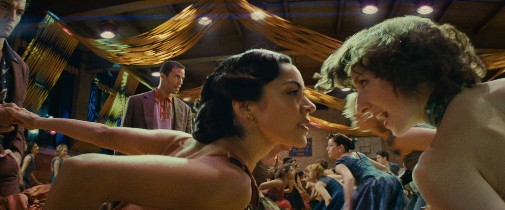
While I question a lot of Kamisnki's choices regarding his quasi-self-parodic lighting and lens choices, there's a lot to love about his ability to execute his director's vision. For example, the gymnasium dance is a miracle of controlled chaos, while the rumble might look even better than the same scene in the 1961 West Side Story.
I loved how Dune was lit more like a traditional period epic than commonplace sci-fi. The darkness that frames people's visages, the way sunlight diffuses within stone interiors, how the desert can look both frigid and boiling – all these elements impress. Even when I yearn for more adventurous compositions, there's a comforting sense of stateliness about it all.
The Power of the Dog is a lovely example of Jane Campion's artistry, full of palpable textures and sublimated sensuality. Still, Wegner's cinematography feels very much her own, not merely a permutation of her director's idea. I felt this especially in how her camera moved, predatory calm, and as pondered as the spare tracking shots in Dreyer's Ordet.
Finally, The Tragedy of Macbeth is pure cinephile catnip, at least to me. Suppose the production design points towards monumental minimalism à la Josef Svoboda. Then, Bruno Delbonnel's digital chiaroscuro is an endless source of visual fun, pointing to an Expressionistic homage that's modern enough to avoid pastiche. I especially loved how the dagger is solved through cinematography. Instead of an apparition, it's now the blade-like reflection of a door handle glistening at the end of a darkening corridor.
Incidentally, that's also how I'd rank the nominees, from least to most successful. However, I'm not sure I'd vote for the Shakespearean picture. Not when Wegner could make history as the first woman to win this Oscar. Do you think such considerations should influence the Academy's final choice?
NICK: I am sitting for a minute in silent awe at how beautifully Cláudio encapsulates the peak achievements of five such different films. I especially would never have thought to analyze Nightmare Alley's visuals in that fascinating way, which is not only clarifying the nomination for me (however much I still resist the plastic-laminate quality of some of Laustsen's lighting) but offers a whole new way to interpret that film.
And for what it's worth, yes, I think it's legit to vote with a variety of factors in mind. But I promised "silent awe," so I'm going to go back to collecting my thoughts. Somebody else, run with this baton...even if it's not a baton but a trickily executed expressionist beam of light!
BEN: My go-to always comes back to "what looks great without making it seem like they are trying to look great" which is why Dune is my winner. Sprinkling spice littering the air, massive explosions lighting the faces of soldiers on the field, burning cities seen from afar. In each case, these shots pose not only an opportunity to visually impress, but compliment the greater narrative. It's one thing when you have a grand location that the camera naturally falls in love with (looking at you Lunana: A Yak in the Classroom), but it's another when that location is an addition to the greater storytelling device.
I think as critics (and film lovers), we get caught up on personal preferences over the reality of the situation. Just because critics were falling over themselves to give Ruth Negga the Oscar didn't mean she was getting nominated. Same thing applies here. As much as the world might love the other nominees, this is between Dune and The Power of the Dog, right?
EUROCHEESE: I assume Dune is our frontrunner, but of the trio most likely to overtake it, Macbeth would be the least surprising victor to me. Reviews for the film had its images front and center, and Delbonnel is now on his sixth nomination from the Academy without a win. It also doesn’t hurt that his nominations began with Amélie, which I’d name as one of the most visually appealing movies so far this century. If voters could be swayed away from Dune’s epic landscapes, I suspect they’d lean in his direction.
Kaminski clearly has detractors among his peers, and Wegner’s best chances would probably come in the form of a sweep for The Power of the Dog, which I don’t believe we’ll see. Dune wouldn’t have worked without Fraser, and I think we will see it dominate the technical awards. Still, there’s always the possibility that with Dune: Part Two coming soon, they’ll hold off and reward the sequel.
NICK: Eurocheese, I completely agree with you about the unlikelihood of a Power of the Dog sweep and about Dune and Macbeth being the front-runners here. I won't be surprised at all if Macbeth wins, for all the reasons you offer. I suspect Delbonnel's global reputation among Filmmakers might also help with the increasingly transnational voting body.
I admit I find Macbeth's visuals tricky to rate—more so in Production Design, but even here. Some of the images are ravishing and innovative, and some strike me as a little bare in texture, execution, or eloquence. Then again, I think this Macbeth wants to come across that way, advertising its own resourcefulness with the constraints of a covid-era soundstage and attending as much to the threadbare, impermanent quality of the Macbeths' newfound power as to the stark grandeur of the palace. I can see the logic behind those choices, but I'm unevenly impressed. Whereas Dune is just as much about how precarity and decline somehow coexist with opulence and imperial striving, yet Fraser's never look less than authoritative. So it easily gets my vote, even in impressive company.
CLÁUDIO: If my preference leans towards Macbeth and my heart yearns for a Wegner victory, my prediction is Dune. Truthfully I expect Denis Villeneuve's space epic to come out of the ceremony as the night's biggest winner, even if it won't take any of the so-called "above the line" categories.
It's curious how Villeneuve has become something of a cinematographer's Oscar savior. Arrival resulted in Bradford Young's first (and only) nomination after a slew of photographic tour de forces that the Academy utterly ignored. Later, Blade Runner 2049 was the movie that finally won Roger Deakins his Oscar. Greig Fraser is the most recent master to benefit from Villeneuve's Midas touch. He should already have an Oscar for his work in Bright Star, so this feels like delayed justice. I'll celebrate the occasion and smile all the way through his speech.
And yet, I hesitate to declare Dune's victory a done deal. After all, I was pretty confident that Nomadland had this in the bag, and we all saw how that turned out. Perhaps the ASC will be the deciding factor for my predictions. They awarded Mank last season, and their current lineup is almost identical to AMPAS'. Am I overthinking this race?
EUROCHEESE: ASC will certainly give us more information, as long as we’re not looking at a West Side Story upset. Fraser already has a win from them, when Lion surprisingly triumphed over La La Land. I’m not sure what this means exactly – would a Dune win come from their love of Fraser, or might a Macbeth win mean they are spreading the love? They certainly don’t mind showering praise on their favorites – Lubezki, for example, may have won the Oscar three times in a row, but ASC went even farther, giving him five wins within a ten-year span. Still, it would be unwise to ignore their top choice.
Also worth pointing out: In the era since the Best Picture line up was expanded beyond five nominees, the only time we’ve seen a win come from outside their ranks was when Roger Deakins finally won an Oscar for Blade Runner 2049. It’s certainly an advantage to be in the top race, and I wonder if Mank was helped last year by being the nomination leader, with very little clarity on where it would take a win. Plus, it doesn’t hurt Dune that box office hits do very well in this category.
BEN: Here's a question for you. What is the best win narratively? Fraser's first to start a legacy? Wehner making history? Dubonel and Lausten's first? The third Oscar for Kaminski?
NICK: For sheer, overdue Oscar novelty and broad industry resonance, I don't think any "narrative" could remotely compete with Wegner's. And that's even without the on-set death of Halyna Hutchins making this a particularly poignant year to (finally) honor a female cinematographer. I say all that no matter how much I'd also be glad to see Delbonnel win one and to see voters look past the Best Picture field. Anyone disagree?
BEN: 1000% with you.
CLÁUDIO: Yeah, I agree that nobody can realistically beat Wegner in terms of narrative.
Though, as always, I wonder if most Academy members look past the movie's title when voting for the so-called "below the line" categories. Do they consider these artists as individuals in the same way they do actors and directors? I'd be more confident in The Power of the Dog if it were so. But of course, in that case, I can also see people voting for Delbonnel thanks to his overdue status. The man is going on his sixth nomination! That means he's tied with Caleb Deschanel for the record of the living cinematographer with most Oscar nominations and no win.
NICK: As Cláudio directs our attention to "below the line" categories, I have one more question before we wrap (unless there's more anyone wants to add about Cinematography in particular?). This category managed to survive the Hunger Game among non-marquee categories this year and keep its spot in the telecast, but as we know, eight others weren't so lucky. If you had to predict, does this experiment with a televised/nontelevised caste system among prizes survive to another year after this one? Or, as I both hope and guess, is this inglourious basterdizing of the Oscars destined to be a one-year blight, like that ceremony when some winners, including Flawless Queen Andrea Arnold, had to receive their statuettes in their seats?
EUROCHEESE: We can only pray that, as Nathaniel called out, the Academy has enough self-respect to understand the value of its own members. I can't imagine the tier system will stand in an industry that relies on collaboration from experts in their fields to produce the films we all love so much, and directors would be insane to disrespect the people who work so hard to make their visions complete. My guess at this point: The shorts may end up getting a slightly lesser treatment, but all other categories will have to come back.
CLÁUDIO: I hope this stupid decision is reversed. As someone who was initially drawn to cinema for its collaborative nature, the Academy's move felt incredibly insulting. It spits on the face of what I most love about the seventh art, not to mention what I've long loved about the Oscars.
I'm not very optimistic but maybe that's just me being too much of an Eeyore. I feel that, as long as the telecast is in ABC's hands, the House of Mouse will keep insisting on such measures. Let's just hope Best Cinematography isn't the next one on the chopping block.
What about you, dear reader? What are YOU rooting for and what do you think will win?
RELATED:
Oscar Volleys - Best Animated Feature, Best Editing
Best Cinematography Oscar Chart
Nathaniel's Cinematography Medalists



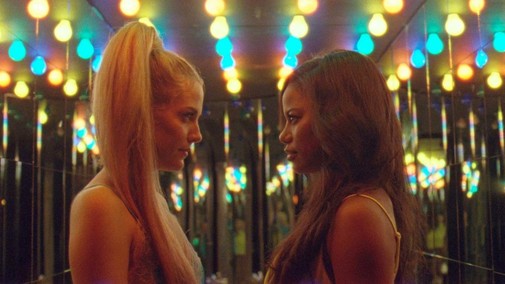
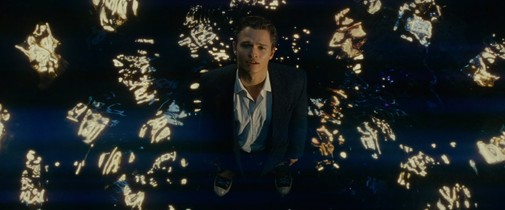
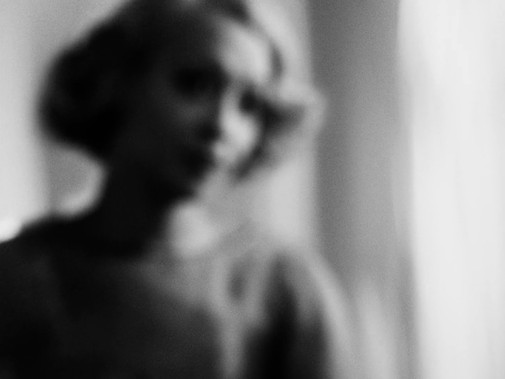
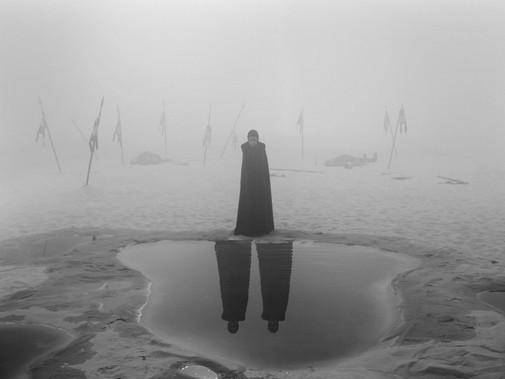
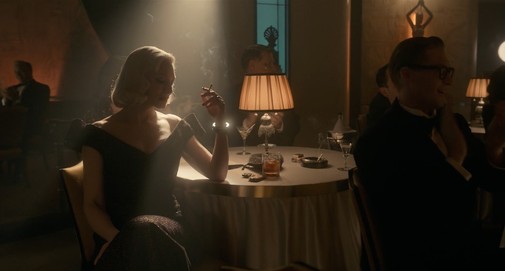
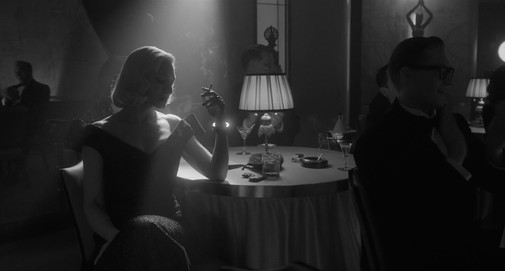
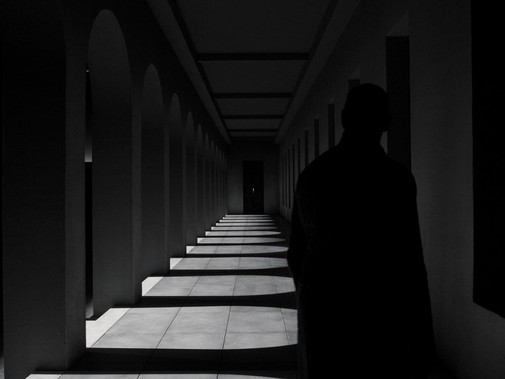
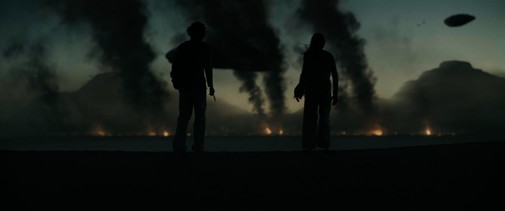
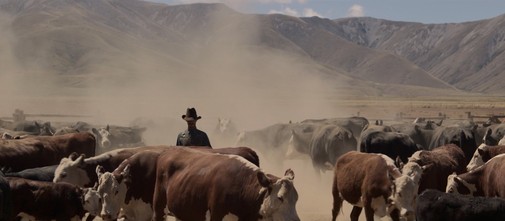
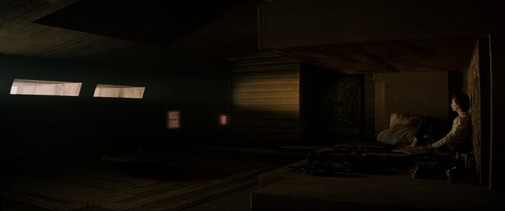
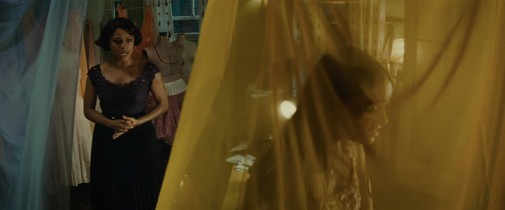

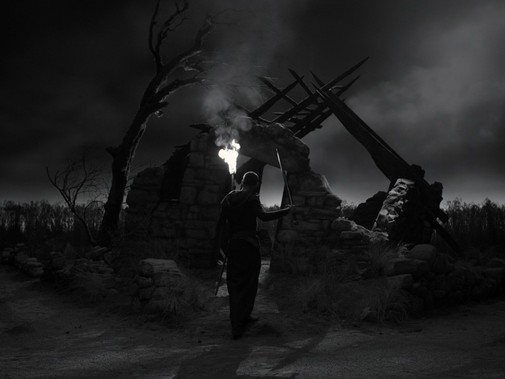
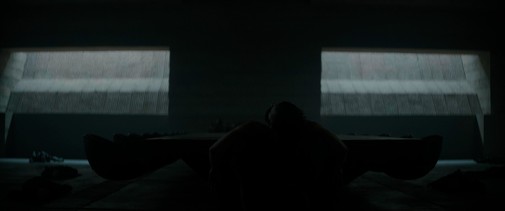
Reader Comments (11)
Dune and POTD. in that order. I disliked West Side Story .. as one of you pointed out.
A very good group of nominees, but my favorite is The tragedy of Macbeth by far, every single shot is magnificent.
Loved reading this conversation about a category I'm mostly very impressed with, carried out by a quartet of writers I'm absolutely impressed with. I think Wegner would get my vote of this five, both for her achievement with The Power of the Dog and her even greater ingenuity with Zola. Love all of the alternative choices recommended here, and I'll shout out three personal favorites real quick:
This is Not a Burial, It's a Resurrection, for lapidary saturation of color, for balancing the visual domination of nature despite the omnipresent threat of total environmental upheaval, and for the attention to Mary Twala's magnificent face.
Licorice Pizza, for gorgeously long, unpretentiously mobile shots that pay enormous dividends to the neophyte leads, the old pros, and California itself, and
Identifying Features, which somehow becomes more astonishing as it grows more boldly stylized with darkness, isolated bodies, and ferocious image-making.
Would love if MacBeth won. Shoulda been a Best Pic nominee.
And speaking of Oscar history (my own lol) I just realized I’ve been watching the Oscars for 30 years this year. I realized when I saw that Wesley Snipes, Woody Harrelson and Rosie Perez are presenters. Is White Men Can’t Jump that much of a 92 classic ? Lol.
Thank you Ben Miller for articulating my thoughts about West Side Story. It's trying sooo hard.
In order of preference, current prediction in bold:
West Side Story
The Tragedy of Macbeth
The Power of the Dog
Dune
Nightmare Alley
My preferences
1. THE POWER OF THE DOG
2. THE TRAGEDY OF MACBETH
3. DUNE
4. NIGHTMARE ALLEY
5. WEST SIDE STORY
The green-red thing in Nightmare Alley comes from Edward Hopper's paintings, a major influence for Del Toro in this movie.
Good share. Thanks
I disagree with almost all that was said about West Side Story. Spielberg has always been a virtuoso and all the decisions regarding framing, staging and lenses (yes, Kaminski does not pick the lenses) are his. He finds creative ways to keep the energy up, balancing cutting and composing in the movement like no other director could. It's a very classicist film in terms of approach and every shot is indeed spectacular, but they're always serving the narrative.
For example, the "Cool" scene, it's so brilliantly shot. The camera works almost as the "tragic chorus" with some beautiful raccords following the gun. It's so difficult to do that, specially when they're shooting n film, and they make it look so damn simple.
Janusz Kaminski main job as Spielberg's collaborator is lighting the sets, and he does a special job here (perhaps his best since Munich); think about the "Maria" and balcony scenes, they're magical and so memorable (probably better than the 1961 version). Spielberg's visuals gain power through Janusz lighting, in many moments feeling like a 1940s Michael Powell/Emeric Pressburger technicolor pic.
And by the way, visual, spatial context. Is there any moment in West Side Story in which you don't know where you are in the action? No. Think of "In the Heights", for example; there are times that you just don't understand what's going on, there are time you don't even see the dancer's whole body for goodness sake (which might be important in dancing scenes) hahahaha.
That's why filmmakers go crazy for the new West Side Story and I think it has a shot in this category, although it's still Dune's to lose IMO.
Guess what? It is unlikely that the non-telecast categories are coming back, as the Oscars are the LAST of the major entertainment awards to do this. The Tony Awards have relegated at least 10 of their 24 awards to pre-broadcast events. Both the Grammys and the Emmys have hundreds of awards given out each year, and only a handful of marquee awards wind up on the telecast. Sadly, now that the Academy is doing this with the Oscars, it is unlikely that they will ever go back, even with the industry uproar. Same thing as with the Tonys, Emmys, and Grammys, people complained vociferously about their precious awards being shunted off-camera, but it hasn't hurt those awards' prestige any. It's just the way of the entertainment world. Honestly, the Oscar show is too damn long and dull, anyway. Now they just need to hire a TV producer and director who understands about pacing and how to keep the show moving along.